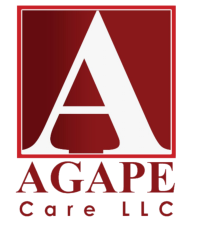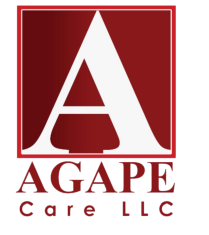How Home Health Care Helps Aging Parents Stay Safe and Age in Place
Ensuring the safety of aging parents at home is a top priority for many families. As parents grow older, they may face various challenges that put their safety at risk. Falls, medication errors, and other accidents can have serious consequences. Home health care offers a reliable solution to these concerns by providing specialized care designed to keep seniors safe and healthy in their own homes.
Home health care services can make a significant difference in preventing common hazards. With personalized care plans, professional caregivers can address the specific needs of each individual. This level of attention helps enhance the quality of life for aging parents, allowing them to continue living independently with peace of mind. Additionally, consistent supervision and support reduce the likelihood of hospital visits and medical costs.
Creating a safe and comfortable home environment is essential for the well-being of elderly parents. Simple adjustments in the living space can prevent accidents and make daily tasks easier. From ensuring proper lighting to organizing clutter-free spaces, these steps are crucial in maintaining a secure home. By combining professional home health care with practical safety measures, families can provide their loved ones with the best possible care and protection.
How Home Health Care Supports Aging and Elderly Parents
Preventing Falls to Keep Aging Parents Safe
Preventing falls is a major step in keeping aging parents and elderly parents safe. Many seniors are at risk of falling due to mobility challenges, medication side effects, or balance issues. Installing grab bars in bathrooms, using non-slip mats, and ensuring walkways are free of obstacles can help. Home care providers play a key role in identifying potential hazards and assisting parents who may need extra help with daily tasks.
Creating a Safe and Accessible Home for Seniors
A safe and accessible home is essential for elderly parents who wish to age in place. Care providers can help families address safety concerns by rearranging furniture, ensuring proper lighting, and making frequently used items easy to reach. These adjustments allow seniors to live comfortably and confidently in their own homes without needing to leave home prematurely.
Reducing Risks to Help Parents Live Securely
Home health care can significantly reduce risks that parents might face while living at home. Consistent monitoring by a care provider helps in identifying and addressing safety concerns early. By ensuring medications are taken correctly and creating a secure environment, elderly care providers make it easier for parents to live safely and avoid emergency hospital visits.
Key Home Care Services for Aging Parents
Personalized Plans for Parents Who May Need Extra Care
Home health care services include creating personalized care plans tailored to each parent’s specific needs. These plans address daily routines, medication schedules, and emergency procedures, ensuring comprehensive care. Families can work closely with care providers to ensure that elderly parents receive the attention they need while continuing to live independently.
Medication Management to Keep Your Parents Safe
For seniors and aging parents, managing medications can be challenging. Home care providers assist with organizing and monitoring medication schedules to prevent missed doses or dangerous drug interactions. This service is crucial for keeping your parents safe and ensuring their health needs are met effectively.
Physical and Occupational Therapy to Help Parents Age in Place
Physical and occupational therapy are essential services provided by home care professionals. These therapies help aging parents regain mobility and adapt daily tasks to their abilities. This support allows parents to age in place while reducing the risk of falls and improving their overall quality of life.
Practical Steps to Address Safety for Aging Parents
Fall-Proofing Your Elderly Parent’s Home
Fall-proofing your elderly parent’s home is critical for ensuring their safety. Remove tripping hazards like loose rugs and cords, and install grab bars near toilets and showers. Non-slip mats in bathrooms and secure handrails on stairs are simple but effective ways to make the home safe and accessible for parents who may have mobility issues.
Ensuring Proper Lighting to Keep Your Parents Safe
Good lighting is essential for helping seniors and aging parents avoid accidents. Brighten up dark areas such as hallways, staircases, and entrances. Night lights in bedrooms and motion-sensor lights in bathrooms can make it easier for your parents to navigate their home safely, especially at night.
Organizing Clutter-Free Spaces to Help Parents Live Comfortably
Clutter-free spaces are important for keeping elderly parents safe. Clear walkways of unnecessary items and use storage solutions like shelves and bins to keep belongings organized. By addressing clutter and ensuring a tidy environment, you make it easier for parents to move around safely and confidently.
The Role of Professional Care Providers in Elderly Care
Experienced Care Providers to Keep Your Parents Safe
Professional care providers bring valuable experience to elderly care. They are trained to assist with daily tasks such as bathing, dressing, and eating, while also addressing safety concerns in the home. Their presence ensures that your parents receive the support they need without compromising their independence.
Relieving Family Members While Helping Parents Live Comfortably
Caring for an elderly parent can be emotionally and physically demanding. Professional care providers offer relief for family members by taking on caregiving responsibilities. This allows families to spend more quality time with their parents, knowing that their loved ones are receiving high-quality care.
Ongoing Monitoring to Address Safety and Health Changes
Care providers consistently monitor the health and safety of elderly parents. This helps identify potential risks or changes in health early, ensuring timely interventions. By addressing these needs proactively, home care professionals create a safe and secure environment where parents might continue living independently.
Conclusion
Caring for aging parents involves more than just meeting their basic needs; it’s about ensuring their safety and enhancing their quality of life. Home health care provides a valuable solution by offering personalized care, medication management, and physical and occupational therapy, all aimed at keeping seniors safe and healthy. Implementing practical safety tips at home, such as fall-proofing the house, ensuring proper lighting, and keeping spaces clutter-free, further contributes to a secure environment.
Professional caregivers play a critical role in this process. Their expertise and training ensure that seniors receive high-quality care tailored to their individual needs. For families, caregivers offer emotional and physical relief, making it easier to manage the demands of caring for elderly parents. The consistent monitoring and assistance provided by caregivers help in maintaining the well-being of aging parents, giving them the confidence to live independently.
If you’re looking for reliable home care services for your loved ones, Agape Care LLC is here to help. Contact us today to learn more about how we can support your family’s needs and ensure the safety and well-being of your aging parents.


